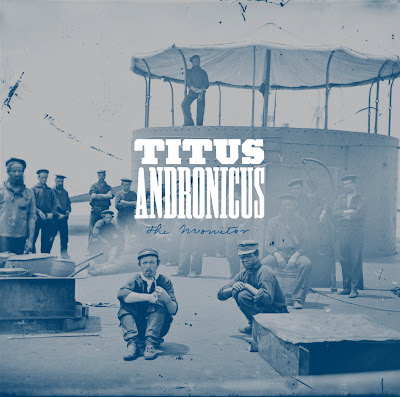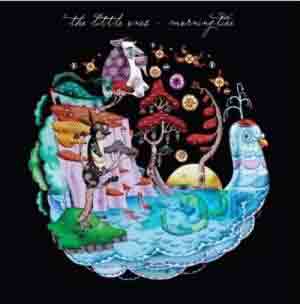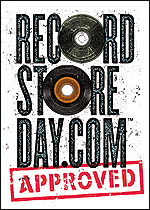
So far, 2010 is looking like a great year for indie and alternative rock.

Browse playlist mixes with hundreds of free, legal MP3s.
New Posts and Playlists
Of Montreal Publishes 2007 Tour DatesSpoon Highlights Stranger Than Fiction Soundtrack
American Analog Set MIA?
Kooks and Killers Take Awards
TVOTR's Making of 'Wolf Like Me'
Information Leafblower
The Decemberists - Too Big To Be Indie?
Amazon.com: Songs for Christmas: Music: Sufjan Ste...
Wimpy Player
What's Hot Now - College Radio Top Ten Lists

best indie albums 2008

 Defining indie music is somewhere on the list of head-scratching questions like "what came first, the chicken or the egg?"
Defining indie music is somewhere on the list of head-scratching questions like "what came first, the chicken or the egg?"For decades, music critics, musicians and fans have attempted to create the one-and-all, decisive definition (um..Wikisomething) for indie rock, and it is still unclear to most people.
So we go back to the original question: What is indie rock (which envelopes many sub-genres).
Traditionalists snarl at the question, claiming that the answer is simple; indie music is any music that is not released by the Big Four (formerly the Big Five until Sony and BMG merged last year) conglomerate of the recording industry - Sony/BMG, EMI, Warner and Universal.
In essence, the traditionalists have it right, and they are usually the ones who harken back to the punk and post-punk eras when indie music really began to challenge the major labels.
But still, there are many music listeners who consider themselves indie music fans, not independent music fans. And many still ask "when did alternative rock start?"
Somehow, it seems as if the term indie has evolved to include bands that start out small, then accumulate a following, perhaps get a hit single and whether or not they sign on with a major label are still considered "indie". Recent examples include Taking Back Sunday and The Killers.
 But many of the "indie" artists that have become very popular have signed on with major record labels. Therefore, are they indie artists any longer? Or is that approach to the understanding of indie music just completely off?
But many of the "indie" artists that have become very popular have signed on with major record labels. Therefore, are they indie artists any longer? Or is that approach to the understanding of indie music just completely off?
Who knows, but I think indie music, or again "indie rock", really encompasses so much music that it is nearly impossible to pin it down. Nevertheless, another worthy stab at defining indie rock is offered up by the folks at IGN Boards.
For the sake of this website, we are going to primarily focus on really, really indie artists who deserve much more attention. Does that mean we are helping to guide them towards a possible new attitude, big cars and homes and a major record contract? We don't know, and we don't really sweat it.
Ultimately, it is up to the fans to decide what they like and what they want to label it as (everyone has their own playlists nowadays, right?).
However, we will also cover bands that are making a buzz and continue to follow groups like The Decemberists who 'crossed over' and signed with a major record label last year.
If an artist or band have made great music as indie artists for a while, and then continues to make great music with a major label, this site will keep fans up-to-date on their news, releases, tours and other worthy information. But again, the primary focus will be on purely indie bands.
From all the online messages and bulletins I've read, and everyone I've talked to and everything the definition of indie rock is malleable, and perhaps that is its greatest strength.
Indie rock means different things to different people. For some they have no idea what it means and for others, they have found a way to define and rationalize their criteria for what qualifies as indie rock.
The real test of what makes an indie artist, and thus, indie and alternative music, hard-core indie vigilantes assert, is when an artist surrenders creative control of his work, even when he makes alterations to his work at the bequest (and/or possible breach of contract) of others for "packaging" reasons.
If he bends to the pressure, he has lost his soul, the musician has transformed and he or she is an indie artist no more.
One friend calls them "corporate money sluts who don't have the courage to say 'fuck this, my creative freedom is more important than the mansions and cars. Plus, " he snickers, "indie rockers get laid more and by hotter chicks."
I will be updating this page periodically as I obtain more insights into what makes indie and alternative rock and how much emphasis needs to be placed on how much fame or fortune the "indie" artist gains.
One thing for sure is that we can whittle indie music down to a time period and a collection of sub-genres.
Offer your thoughts about indie and alternative music by joining the discussion (use Comments button).
Over time, we can gather various opinions, facts and sentiments to come up with a reasonable definition of what is indie rock.
Attention Writers: We are building a database of indie rock record labels. If you want to take a label and write a review about it, include some of its biggest artists and whatever else is relevant, send an email to contact at indierockcafe.com
Successful submissions will receive a free listing in our link exchange page plus of course your published writing on a music blog that gets 5,000 hits a month and counting.
Here's a list of just some of the record labels. Please use the Comments section to add labels not on this list and help IRC grow into one of the best indie music blogs on the Internet. I will also be updating this list as time goes on, but too busy working on other sections of the IRC site, plus the upcoming Indie Rock Concerts and Indie Rock Songs websites.
Labels: Indie Rock Definition, What is Indie?
eMusic's FREE Daily Download!
Older Posts





5 Comments:
I agree totally with this post. The term Indie referring to Independent is exactly that, Independent of any big machine or corporation or record company Most Independent Artists don't really care if they ever get "discovered" although in my case I wouldn't turn it down.
Rock on my brothers and sisters.
Terry Prong
I think people should settle with calling a group what they want. HOwever, you wouldn't call Blink 182 an indie band. How about Yo La Tengo? I think if many people that listen to "mainstream" music never heard of artist or band, then that is probably indie. BTW, I love your writing and your site; keep working at it!!!!! - Shelia in OK
Is that realy indie? because, if you listen to a random black metal band that did just the same thing, started out independant, got big, then continued that independant cource, you'd never say that they are indie...
I think "indie" is more like the status (signed or unsigned with the big four) of a band and it should not refer to the kind of music they play.
We would label a band like The Editors "indie" because they're not released under any of the Big Four, but if ever they do become un-indie, I don't think it would change the type of music they play.
True, some artists might hang on to their indie status because they have more artistic freedom that way, but I personally think it's not always the case.
Besides, the channels in which artists can express their music have changed--now it would be possible for you to gather a larger fan base than a "mainstream" artist while remaining "indie."
I was having a discussion just the other day about the definition of alternative/indie music.I was certain that it started somewhere in the mid 80s but then my friend showed me some tracks from the 60s and if you listen to them, all of you can say they got alternative-ish in them.
So i guess this type of music isn't connected only with the labels.We can recognize alternative/indie bands by something that is indescribable.
But there's this another definition:alternative music is something that is different and experimental...
Post a Comment
Links to this post:
Create a Link
<< Home